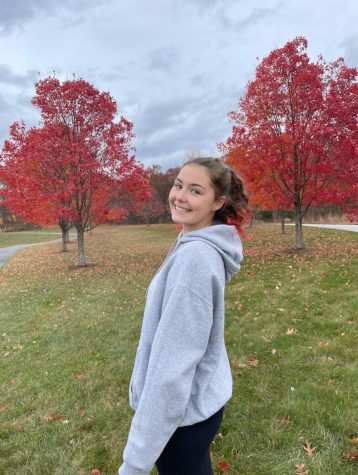FDA Holds Virtual Press Conference for Student Journalists about Vaccines
May 27, 2021
On Tuesday, May 18, the Food and Drug Administration (FDA) held a virtual press conference for student journalists regarding the recent approval of the Pfizer Biontech vaccine usage in 12-15 year olds. Lasting 30 minutes, the press conference covered a variety of subtopics regarding the vaccine.
General Remarks from Dr. Janet Woodcock, Acting FDA commissioner
Dr. Woodcock was very supportive of this opportunity for student journalists and expressed her appreciation for future journalists and their work. Dr. Woodcock explained that the Pfizer Biontech vaccine (hereby referred to as the Pfizer vaccine) was authorized by the FDA for emergency use for 12-15 year olds last week. A bit later, the Center for Disease Control and Prevention met and voted in favor to approve the vaccine, although it was already authorized by the FDA.
According to Dr. Woodcock, the Pfizer vaccine “meets [the FDA’s] high standards for quality, safety and effectiveness”. Dr. Woodcock continued to add that the Pfizer vaccine underwent “rigorous and thorough review” and the FDA has “full confidence” in the process of making and administering the vaccine. To address the concerns of parents weary of vaccinating their children, Dr. Woodcock stated that there are documents posted regarding the process of creating the vaccine and FAQ pages to help answer any unanswered questions.
Dr. Woodcock stressed that children should be vaccinated. Though most children have milder symptoms than adults, they are not immune, as shown by the statistic that 1.5 million children ages 11-17 tested positive for Covid-19 as of April 2021. However on a brighter note, 600,000 children 12-15 years old already received their first dose of the Pfizer vaccine.
General Remarks from Dr. Peter Marks, Director of the FDA Center for Biologics, Evaluation, and Research
Dr. Marks reiterated that the Pfizer vaccine was “guided by science”. In discussing that science, Dr. Marks explained that there was a clinical trial of over 2,000 people ages 12-15. Half of those people received the Pfizer vaccine while the other half received the placebo*. For those who received it, the vaccine dosage remained constant at 2 doses, 3 weeks apart. All participants in the trial were studied for at least two months after their injection, and data is still being collected now. For the most part it was discovered that similar to the 16 and older administration, side effects after the vaccine vary. Out of the 1,000+ participants who received the vaccine, none of them contracted the virus, proving the vaccine efficacy to be 100%. Based on this accumulative data, the FDA moved to approve the Pfizer vaccine for children ages 12-15.
*A placebo is a substance that is neutral. The purpose of any placebo is to ensure anyone that receives the drug being administered in a trial is receiving results based on the efficiency of the drug, not based on the mindset of the person. People in trials don’t typically know if they will receive the placebo or the vaccine. In this case, a saline solution was used as the placebo group.
Question: What should children do if they want to be vaccinated but their parents won’t allow them to be?
Dr. Woodcock suggests that children direct their parents to their pediatricians for more information about vaccines. Dr. Marks echoed Dr. Woodcock’s sentiment adding that this would eliminate any misconceptions and ensure all concerns are addressed.
Question: If you’re fully vaccinated, is it safe to unmask in schools?
Dr. Woodcock responded again saying to defer to “local jurisdictions” for this matter. Due to the vast differences in number of cases, number of vaccinated residents, and the type of virus in an area, it is up to the local officials to decide. Dr. Marks agreed and added that the vaccine was found to protect children very well.
Question: Why weren’t younger children (children 11 years old or under) tested with the 12-15 year old group?
Dr. Marks took the lead with this question in saying the easiest path forward was the 12-15 age group because it was the next closest group to the 16 and older section. As stated previously, children under the age of 12 have to receive a different dosage that requires more calculations. Additionally, Dr. Marks said there is a syndrome that some children under the age of 10 contracted if they had COVID-19 called the Multisystem Inflammatory Syndrome. Technically it remains unknown if the vaccine will trigger the same effects, so extra research with children should be done before it is approved by the FDA. The FDA predicts that the data for younger children will come out later this year. Dr. Woodcock added that usually a vaccine trail takes seven years, and the timeline can only be compressed so much to still receive accurate results. With children having different immune responses to the virus, the FDA wants to be cautious when approving the vaccine for younger children.
Question: Will the Pfizer vaccine need a booster shot? Can the vaccine be incorporated into the seasonal flu shot?
The FDA wants to conduct a study to determine whether or not the vaccine for Covid-19 can be administered at the same time as the seasonal flu vaccine. In terms of the booster shot, it is about how long the protection from the vaccine lasts. According to Dr. Marks and Dr. Woodcock, the older population is the best group to study to answer this question as they were the ones who received the vaccine first. In all people at the moment, the vaccine is being tested against the new variants. As of right now, scientists are assuming that the Pfizer and Moderna vaccines are effective against variants. In terms of an estimate of when a booster dose would be needed, the doctors say it could be more than a year, or less than a year, and we will have to “figure it out as we go”.
Question: Previously, Pfizer has been accused of fraud, is it a good idea to support their vaccine despite such charges?
Dr. Marks led the response to this question, saying that the text admitted that Pfizer pleaded guilty about lying in the past. Dr. Marks continued, “companies do things that aren’t good” but the FDA’s job is to regulate the companies. The FDA looks at submitted data and test results to ensure they match and looks at the processes with the utmost diligence. Additionally, the FDA oversees that the post-market surveillance remains safe and effective. In the particular case of the Pfizer vaccine, the FDA checked 10-20% of the data from clinical trials, oversaw the manufacturing process, and after 44,000 people in the clinical studies were okay, they decided the process was completely safe for people to trust. Dr. Woodcock circled back to the original question about the claim against Pfizer specifically adding that the fraud charges were likely due to the marketing strategies and not the products themselves. She says often when going after companies, the marketing strategies are the part that are questionable and potentially lead to issues for the company, but not usually the products themselves.
Question: What is the cost of the vaccines for the United States and what is the long term plan to cover this expense?
Originally, the United States invested $18 billion in vaccine development. This helped with research, production, and administration of the vaccines. Eventually, the vaccines will transition from the “emergency use authorization” category to the conventional vaccine classification. When this happens, individuals will have to pay for their own vaccine — unless it is paid for by insurance — as the government won’t provide the vaccine for free anymore because it isn’t an emergency. The United States is going to help financially support other countries’ vaccine productions as well because it recognizes that the vaccine doesn’t regard national borders. So although large sums of money have been spent on the vaccine, it is a miniscule toll in comparison to the loss of lives and loss of our way of life.
Final thoughts
Both Dr. Woodcock and Dr. Marks reiterated that the U.S. is fortunate that the vaccines have such high efficacy. In addition, it is so important that the government invested in multiple potential vaccines and now three of them are authorized for emergency use.







